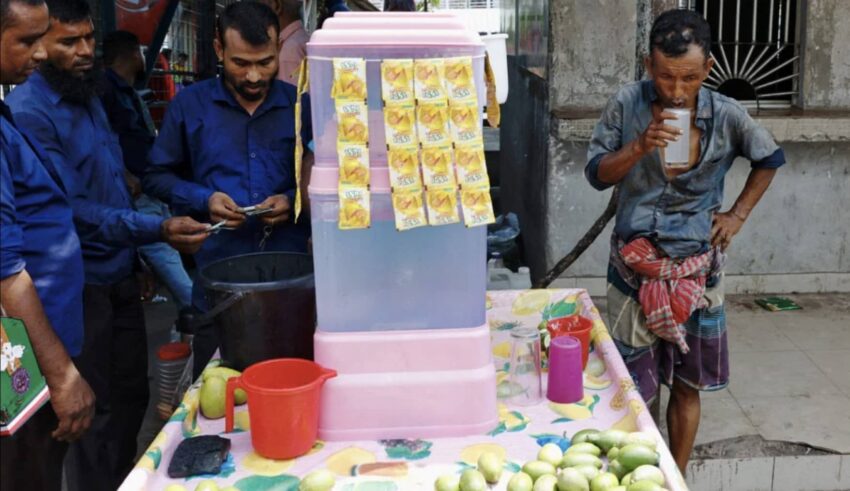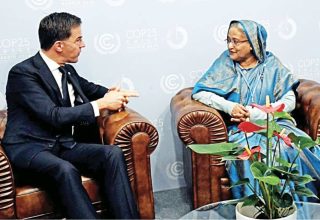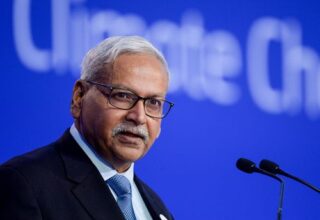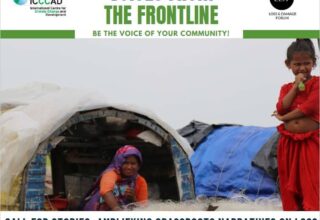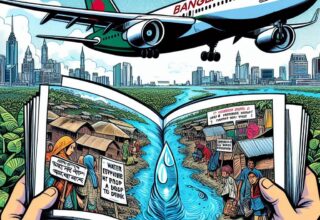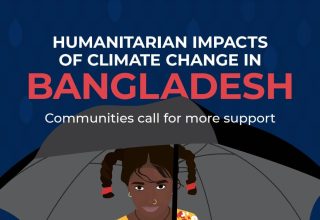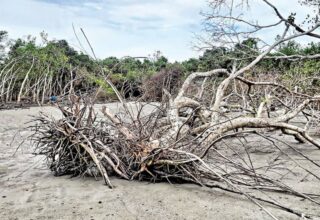
Over the last few months, I have been saying at different meetings that 2023 will see the beginning of the era of losses and damages from human-induced climate change. I have also been saying that every new day, week, month, and year will bring more climate change impacts, and no country is prepared for what is to come.
It was on July 3 this year that the world had its hottest day ever. On July 4, that record was broken. On July 6, it was broken again! The first week of this month was the exact point in time when the world crossed into the new era of loss and damage from human-induced climate change globally. The impacts can be seen around the world. In June, severe wildfires in western Canada caused many Canadians to lose their homes and become climate refugees, while the smoke from the fires travelled across the country and into New York in the US. The smoke is now travelling across the Atlantic Ocean towards Europe.
At the same time, across the world, in the Pacific Ocean, we are seeing the beginning of a new El Nino year, which means that we have to expect significantly higher temperatures globally – not just for one year, but for several years to come.
One of the most severe and immediate impacts has been higher-than-normal atmospheric temperatures in many countries such as Bangladesh, India, Spain, and the US. In some places, the temperature has gone up to 50 degrees Celsius, which is the limit of human tolerance. Unfortunately, this is likely to become more frequent and most countries are not well-prepared to deal with it.
At the same time, sea surface temperatures are also above normal, which causes regular cyclones to become super cyclones. We saw this happening with Cyclone Mocha a few weeks ago, which went from Category 3 to 4 to 5 (which is super cyclone status) while it moved up the Bay of Bengal towards Bangladesh and Myanmar. Fortunately for Bangladesh, the cyclone veered eastward before making landfall. But it did cross the southeastern tip of Bangladesh before moving towards the Rakhine state in Myanmar, where over 200 people died. Cyclone Mocha was also a good example of how being better prepared can reduce losses and damages. In Bangladesh, over half a million people had received the cyclone warning and were well-prepared in shelters, whereas those in Myanmar were caught off-guard. In other words, better adaptation can help minimise losses and damages.
At the same time, there has been severe flooding in countries such as China, India, and Italy, showing that serious climate change impacts are no longer limited to poor countries. This also demonstrates that no country is prepared for what is yet to come, and that all countries need to enhance adaptation actions in order to minimise the inevitable losses and damages from the impacts of human-induced climate change.
Thus, at the next COP28, to be held in Dubai in December, world leaders will need to raise their game to ensure more rapid mitigation to reduce greenhouse gas emissions as quickly as possible and keep the global temperature rise below 1.5 degrees Celsius – which is still possible with requisite political will from all leaders. At the same time, the emphasis and requisite funding for adaptation and addressing the reality of losses and damages must also be put in place.
The bottom line for all world leaders is to regard COP28 as COP01 of the new era of loss and damage, and to treat it as the crisis that it has already become.
Originally this article was published on June 12, 2023 at Daily Star. The author Prof. Saleemul Huq is the director of the International Centre for Climate Change and Development (ICCCAD) at the Independent University, Bangladesh (IUB).
Email: saleemul.huq@icccad.org

